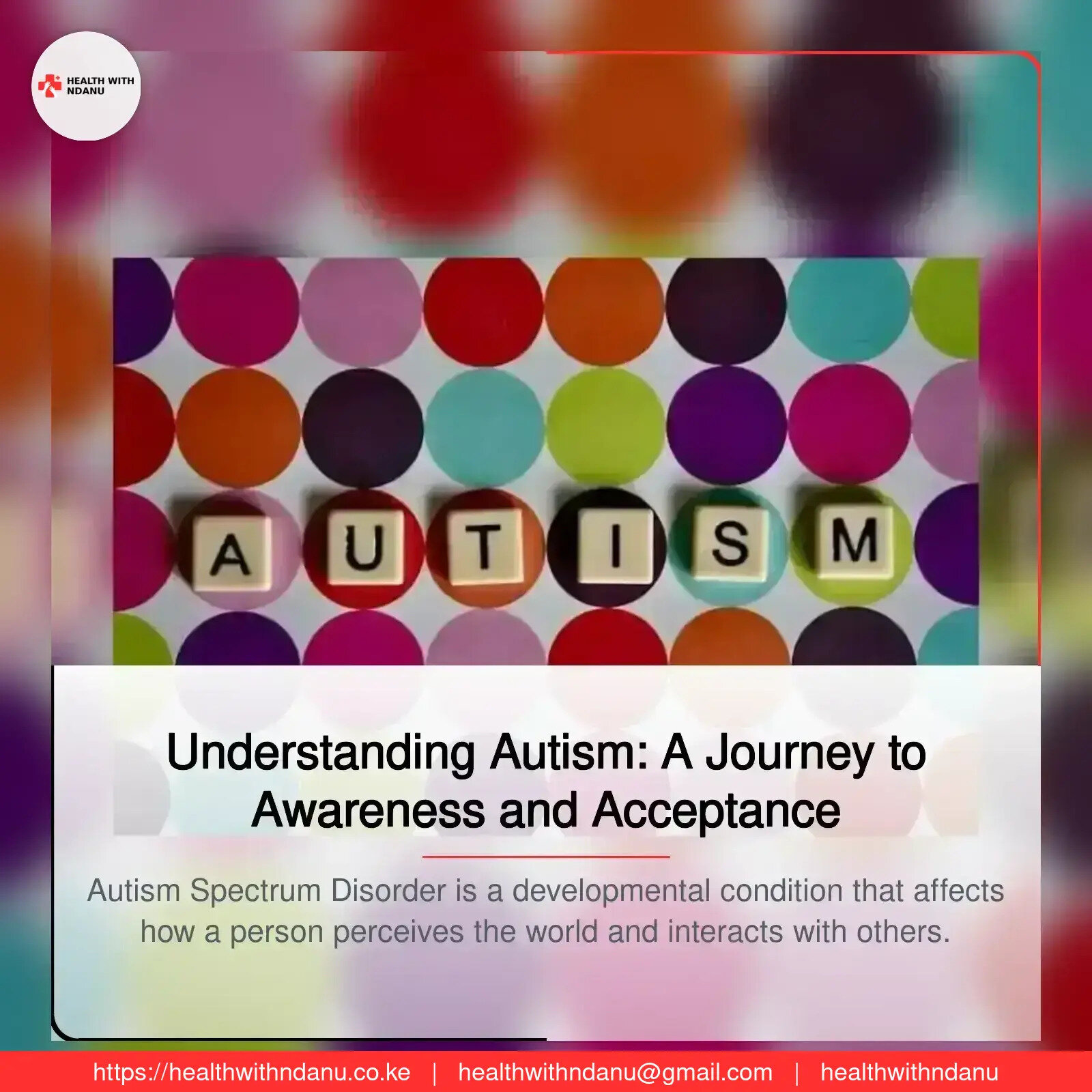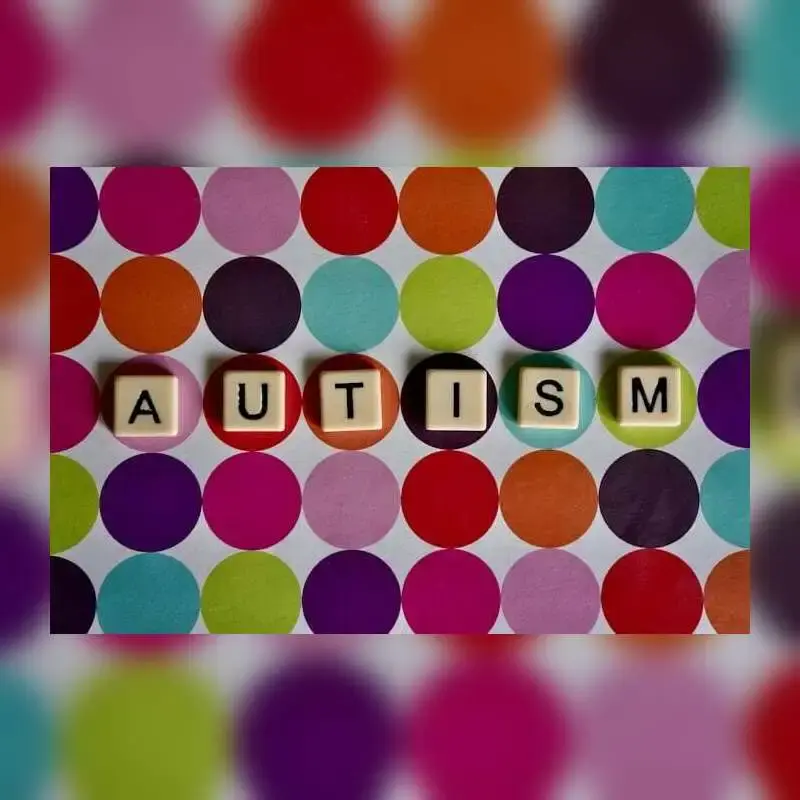Understanding Autism: A Journey to Awareness and Acceptance
- by Diana Ndanu
- 11 January, 2025
- 0 Comments
- 5 Mins



Introduction
Autism, officially known as Autism Spectrum Disorder (ASD), is more than just a medical term—it’s a way of life for millions of individuals and families worldwide. Whether you're newly exploring what autism means or looking to deepen your understanding, this guide aims to shed light on the condition in a conversational and easy-to-digest way. Let’s dive into what autism is, how it affects individuals, and why awareness and acceptance are essential.
What Is Autism Spectrum Disorder (ASD)?
Autism Spectrum Disorder is a developmental condition that affects how a person perceives the world and interacts with others. The term “spectrum” highlights the wide range of symptoms, skills, and levels of support people with autism may need. Autism isn’t a one-size-fits-all condition—it manifests differently in every individual.
Some key characteristics of autism include:
- Social Communication Challenges: Difficulty understanding social cues, body language, or maintaining a conversation.
- Repetitive Behaviors: Engaging in routines, repetitive movements, or specific interests with intense focus.
- Sensory Sensitivities: Over- or under-sensitivity to sights, sounds, smells, textures, or tastes.
While these traits are common, they vary in intensity and impact. Some individuals may require significant support in daily life, while others thrive independently.
Common Misconceptions About Autism
When it comes to autism, misinformation often overshadows reality. Here are some myths that need debunking:
1. “People with autism lack empathy.”
This is false. Many autistic individuals feel emotions deeply but may express them differently or struggle to recognize others’ emotions intuitively.
2. “Autism is caused by bad parenting or vaccines.”
Autism is a neurological condition with roots in genetic and environmental factors. Parenting styles or vaccines are not to blame.
3. “All people with autism are geniuses.”
While some individuals with autism have extraordinary talents or savant abilities, this doesn’t apply to everyone. Each person is unique.
Signs and Diagnosis of Autism
Recognizing autism early can make a big difference in providing the right support. Signs of autism often appear in early childhood but can be subtle. Here are some red flags to watch for:
In Babies and Toddlers
- Limited eye contact or facial expressions.
- Lack of response to their name by 12 months.
- Delayed speech or language development.
In Older Children
- Difficulty making friends or engaging in group activities.
- Preference for routines and strong resistance to change.
- Intense focus on specific interests, like trains, dinosaurs, or numbers.
If you notice these signs, consult a pediatrician or specialist. Autism is diagnosed through behavioral evaluations, developmental history, and assessments conducted by professionals such as psychologists or developmental pediatricians.
Life with Autism: Challenges and Strengths
Living with autism comes with unique challenges, but it’s also filled with strengths. Let’s explore both sides:
Challenges
Social Isolation: Difficulty connecting with peers can lead to feelings of loneliness.
Sensory Overload: Crowded places, loud noises, or bright lights can be overwhelming.
Educational Barriers: Traditional school settings may not accommodate diverse learning styles.
Strengths
Attention to Detail: Many autistic individuals excel in tasks that require precision and focus.
Creative Thinking: Unique perspectives often lead to innovative ideas.
Passion for Interests: The ability to dive deeply into a subject can lead to expertise.
Understanding these aspects helps us see the whole person, not just their diagnosis.
The Importance of Autism Awareness
Why is raising autism awareness so vital? Because awareness paves the way for acceptance and inclusion. Misunderstanding and stigma can create barriers, but knowledge helps break them down.
Ways to Support Autism Awareness
1. Educate Yourself and Others: Share accurate information about autism with friends, family, and your community.
2. Support Inclusion: Advocate for inclusive classrooms, workplaces, and public spaces.
3. Celebrate Neurodiversity: Recognize that differences make us stronger as a society.
Creating an Inclusive World
Creating a world where autistic individuals feel valued starts with small, everyday actions. Here’s how you can help foster inclusion:
- Be Patient and Understanding: Communication may look different, but it’s no less meaningful.
- Accommodate Sensory Needs: Offer quiet spaces or allow individuals to use tools like noise-canceling headphones.
- Hire and Empower Autistic Employees: Neurodiversity brings unique strengths to the workplace.
Autism Support
If you’re a parent, caregiver, educator, or ally, you should consider the following,
Local Support Groups: Connect with families and individuals in your area for shared experiences and advice.
A Message to Parents and Caregivers
If you’re parenting or caring for someone with autism, remember: you’re not alone. Building a support network, embracing your child’s strengths, and celebrating their progress—no matter how small—can make a world of difference.
Final Thoughts
Autism is not a problem to be fixed but a difference to be understood and embraced. By fostering awareness, acceptance, and inclusion, we can create a brighter future for autistic individuals and their families.
Every step we take—big or small—toward understanding autism contributes to a world where everyone is valued for who they are. Let’s continue learning, supporting, and celebrating the beauty of neurodiversity together.
If you found this article helpful, share it with others to spread autism awareness!
Got Your Own Experience? Share with us
Popular Categories
Mablogu Zinazobambwa Sana
Daily Newsletter
Get all the top stories from Blogs to keep track.



